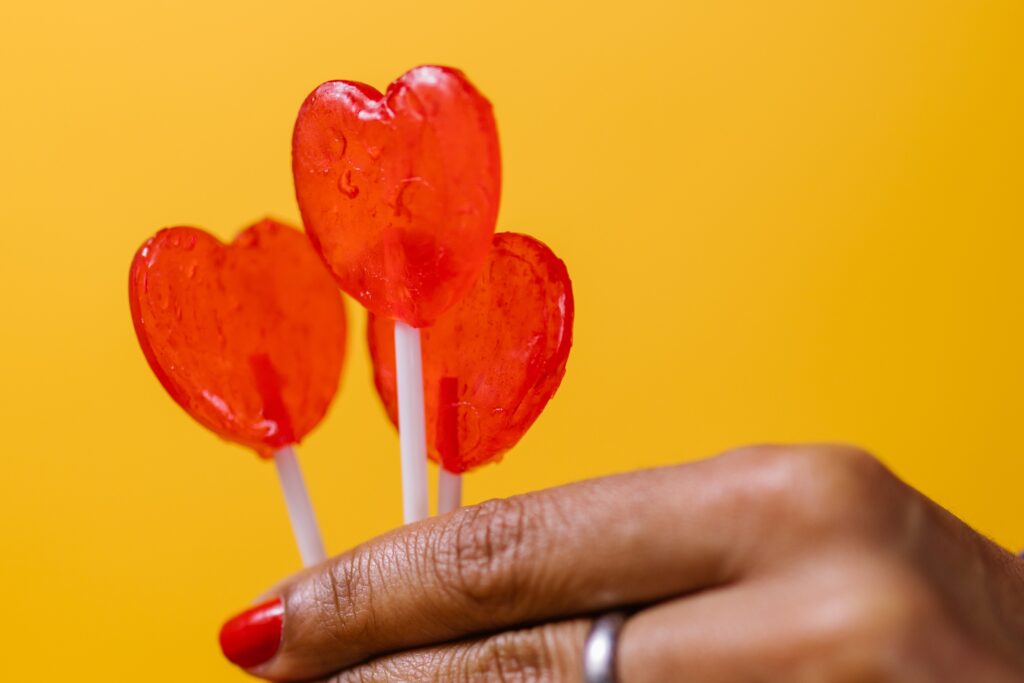
More than a red dress: learning what love is
In her second article on love, Nicole Law explains that love must go beyond attraction and desire to truly seek the good of the other.
So what then is love? I’ve looked to Netflix, romance novels and lived experience and come away with incomplete answers.
Netflix has sold me on a happenstance encounter between individuals on a specific day in the year at a specific cafe. Romance novels have left me wondering what might ‘inspire affection’ à la Mr Darcy in Jane Austen’s Pride and Prejudice. Lived experience has provided me with a reminder of the gap that exists between the ideals I hold in my mind and the human beings I encounter.
But the most helpful answer comes from a deceased pope, St John Paul II, who wrote a lot about love and who crystallises it in a single, albeit slightly dense, sentence: Love is always a mutual relationship between persons, based on a particular attitude to the good.
This is worth unpacking. The pope talks about love in three dimensions, as attraction, desire and goodwill.

The word ‘attract’ reminds me of the countless videos on social media I have scrolled through on strategies for men and women alike to be more attractive to the opposite sex. Relationship gurus or coaches spill the beans on ‘secrets’ to attract a romantic partner and the advice ranges from wearing a red dress to entering a room with confidence.
While such tips are mostly reasonable, I realised that the contemporary idea of ‘attraction’ involved the external appearance – how we appear to other people. Granted, we live in a world where many of us curate our online presence, favour professional headshots over bleary-eyed brunch selfies, and where we notoriously apply image filters before a photograph goes online.
But St John Paul II offers an alternative view on attraction. He says that ‘to attract’ someone means more or less the same as to be regarded as ‘good’. Yes, physical attributes can be important, as how people appear can say a lot about them which might or might not be what we are looking for. But they do not paint the full picture.
The human person is much more complex and, I’m afraid, when it comes to dating, sometimes we fail to go deeper than what we can externally perceive. But we really should count on other factors too.
First of all we should realise that attraction itself does not follow a purely cognitive structure. It is not a simple case of ‘I recognise value X in that person and I am attracted to that person’. It also involves emotions and the will. I think of emotions as that sudden rush of hormones when you feel attracted to a person for reasons you can’t quite identify at that moment.
And it’s here where free will enters onto the scene. We can be attracted to a person because we view them as good, along with the emotions which accompany this perception. But without the will, attraction is fleeting. We may think a person attractive today when we see a photograph of them online or when a friend shows us his or her profile but the feeling might flitter away within a week.
In today’s language, we could call this a ‘crush’, an intense feeling of attraction towards someone without actually knowing him or her at a deeper level. The will however, elicits a commitment to think of that person as good in a broader sense. We start to delve deeper into them, his or her motivations, his or her gifts and his or her flaws.
Getting to know another human being is a slow process of revelation.
Growing love fosters a mutual self-opening by both parties and if we allow this to happen, we each allow the other, with time, to get to our core essence.

After attraction comes desire which, curiously, arises from a sense of our own incompleteness. As human beings, we are limited and are not self-sufficient (though we may believe we are). We need others. I value my independence but I have been humbled many times when I have had to seek assistance from others.
The recognition of our insufficiency, then, is the starting point of understanding our relation to other people. We need them in our lives. Of course, this awareness could be stunted and selfish. If we desire another person merely for the sake of what they can do for us, we will treat them as an object of use.
Say we call up a friend of the opposite sex and share with him or her about the challenges we faced at work that day. However, when he or she turns to us in their hour of need, we excuse ourselves as ‘busy’. This one-sided dynamic distorts desire into use of the other person and is a dynamic we observe with increasing frequency in relationships today.
In modern language, the ‘Define the Relationship’ conversation comes up when either party in a romantic relationship wishes to clarify the parameters of the connection. It is a natural step in the progression of romantic relationships. If both parties are on the same plane and wish to progress further, it cements the relationship.
But in situations where desire for the other has turned selfish, one party may express his or her preference for a relationship without clear labels, in which each party is not committed to the other. Today, we would call this a ‘situationship’.
The truths which our dating behaviours reveal about our human nature are illuminating. Love as attraction and desire is not sufficient. I cannot simply ‘want’ a person because he or she makes me feel good or gives me satisfaction. I must ‘want’ a person for his or her sake.
Now, in a sense, we should ‘want’ every person for their own sake but this doesn’t mean I should necessarily have a romantic relationship with each one. We can’t, and shouldn’t, ‘fall in love’ with them all.
I am simply saying that when we actually do feel ‘attracted’ to someone so as to take the relationship to a higher level, we have to go beyond attraction and desire and start asking deeper questions. Is this person good for me? Am I good for him or her? Do we truly complement each other? Will we make each other better? Will this relationship lead to good for us both?
That then brings us to the last element of love – love as goodwill. St Thomas encapsulates this in his idea of amor benevolentiae which roughly translates to – It is not enough to long for a person as a good for oneself, one must also, and above all, long for that person’s good. Love then goes beyond the emotional-affective plane that many of our relationships can seem ‘stuck’ at.
I know for one that feelings can only drive a relationship so far, and when the rush of feeling mellows, what remains is the activity of love, often demanding and nitty-gritty. In the past few years of my life, I have experienced how love can indeed stretch me beyond my imagined capacities.
To live a small existence would be to focus on our own individual needs and to dwell in a box where it feels safe. Genuine love leads us out of safety and enlarges our existence. In my relationships, I have experienced a gradual enlargement of my heart, to go beyond my selfish desires to intuit what is best for the person I love.
I have been disappointed at times by how much of what we think of ‘connection’ is predicated on the first two elements, attraction and desire. In the process of loving and losing people whom I love, I have become aware of a key truth.
Love is not just something which happens to us. It is active. It is a daily decision to desire the good of the other.
In desiring good for the other, we learn the value of sacrifice and of making the difficult decisions to lose and let go. Inherent in goodwill is selflessness: we long for the good of another with no selfish ulterior motive or personal consideration.
Letting go sometimes has to be more definitive, also for the good of the other. “This is not working. We are not right, good, for each other.”
But sometimes people don’t ask the right questions. I think of the difficult conversation I had when a relationship had run its course. When I heard ‘there are no more feelings’, I was prompted to gently share that ‘love is more than a singular feeling, it is a daily decision’.
The road of love is not an easy one to tread. Many of us have walked away from imagined futures with broken hearts and spirits. The singular but difficult truth which emerges is that genuine love entails sacrifice and to want what is best for another person, even if this might be painful for us.
Love, then, begins with initial attraction, develops into desire and is matured in goodwill.
I think many of us are afraid of holding up our relationships to the light for fear they may crack.

But we are made for a love which integrates all three elements, undergirded by reciprocity. Love is something shared between two persons. If we desire the good of the other, even under the stresses of daily life, the reciprocity we demonstrate assumes the characteristics of durability and reliability. Or more simply, it lasts and we can be trusted to stick at it.
Love means not walking away from a difficult conversation, speaking our minds with tender kindness, and being willing sometimes to shoulder more of the burdens in a relationship.
As human creatures, we fall and we fail often. We enter into relationships not fully whole. Yet, there is a beauty in witnessing the human will driving us forward to choose the difficult option and to continue to take small steps in the direction of genuine, mature love.
I still believe in love, a love which draws me close to another and provides a safe space for my own inner self to unfurl. I continue to do the difficult internal work of fighting my selfish desires and let the good of the other take precedence.
Genuine love elevates us to a plane we may think is unattainable at the outset, but with grace, we can enlarge our hearts and remember that we are indeed made for a love larger than ourselves.
Like what you’ve read? Consider supporting the work of Adamah by making a donation and help us keep exploring life’s big (and not so big) issues!
Nicole Law
Nicole Law is a writer for Adamah Media. She is an educator based in sunny Singapore. Her calling is not only to mould young minds, but also to nourish souls through her faith-based podcast. She has a soft spot for burnt cheesecake, Dean Martin and swing dance. When she’s not engaging with her listeners, she’s planning new conversations for her podcast - she believes in the power of conversations and the beauty of our relationships.

